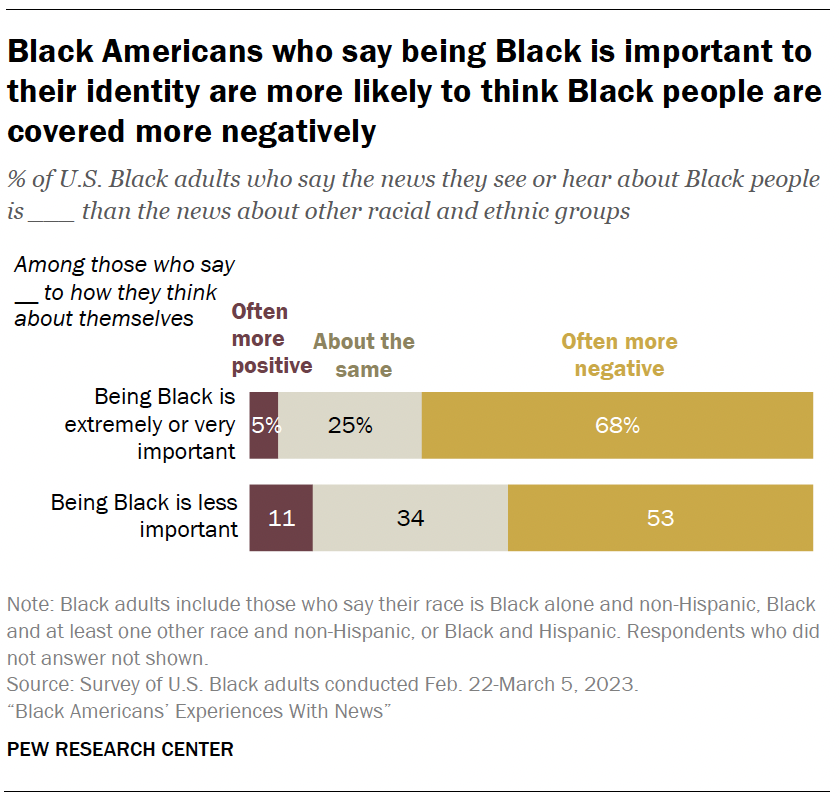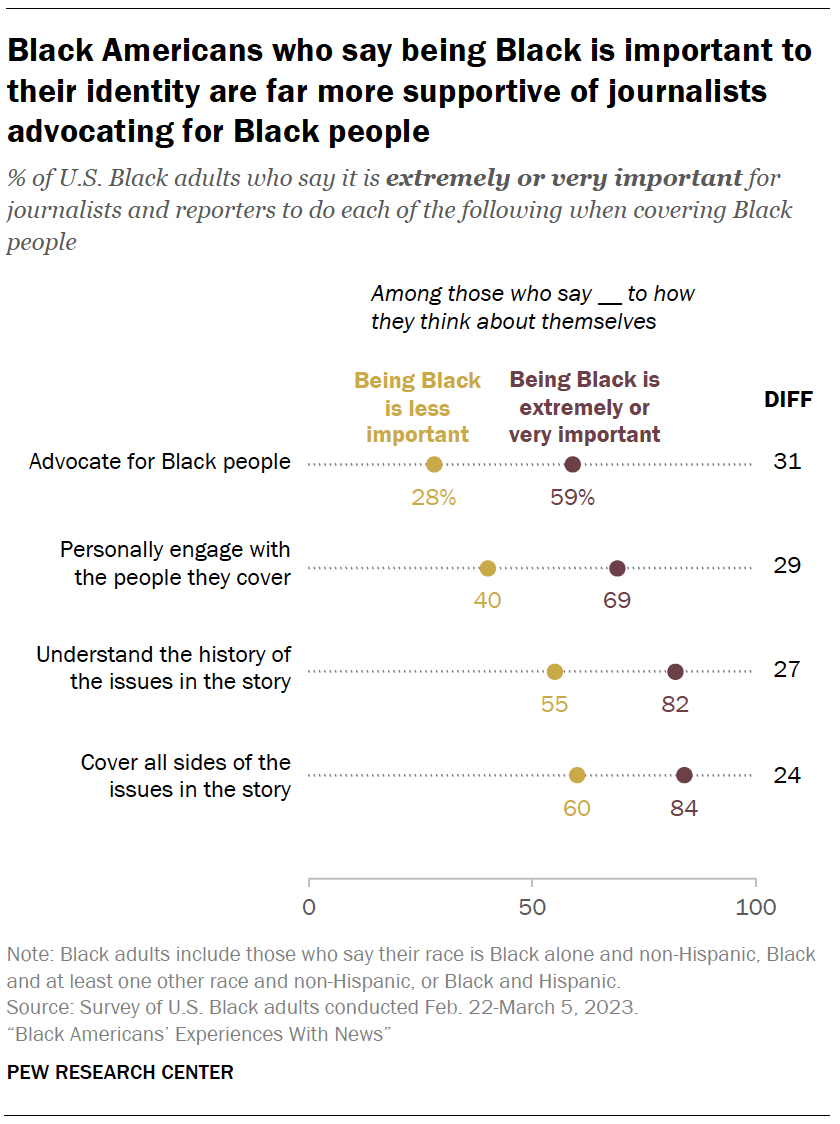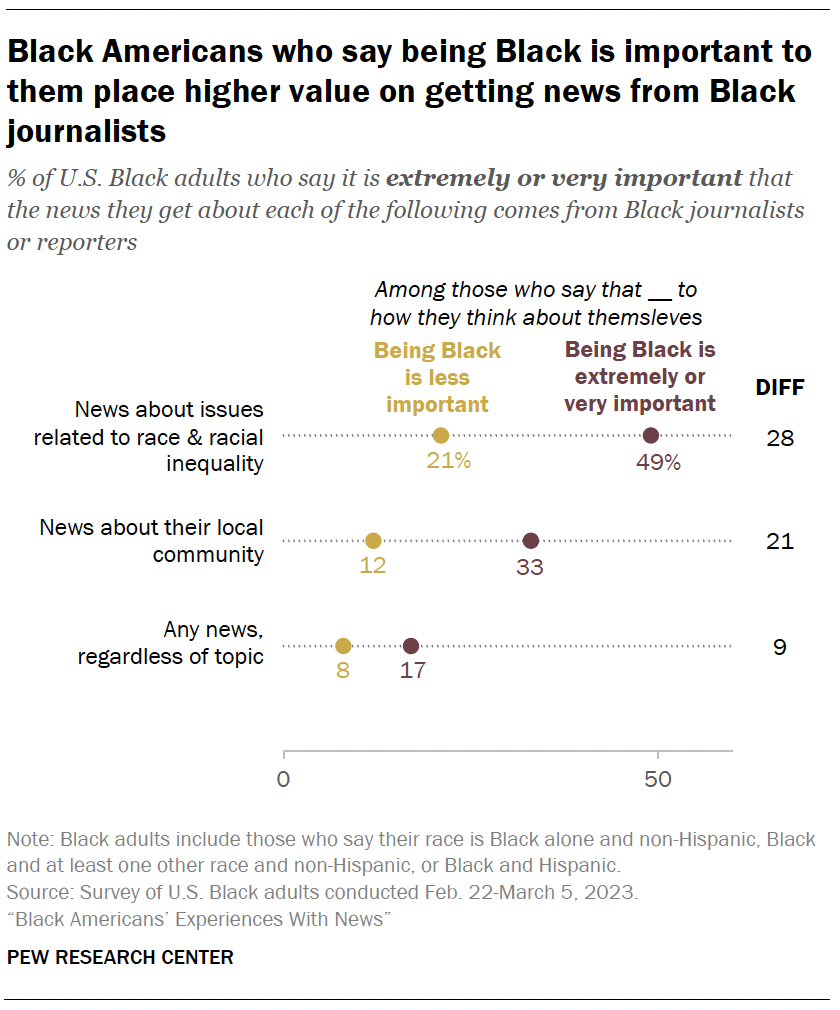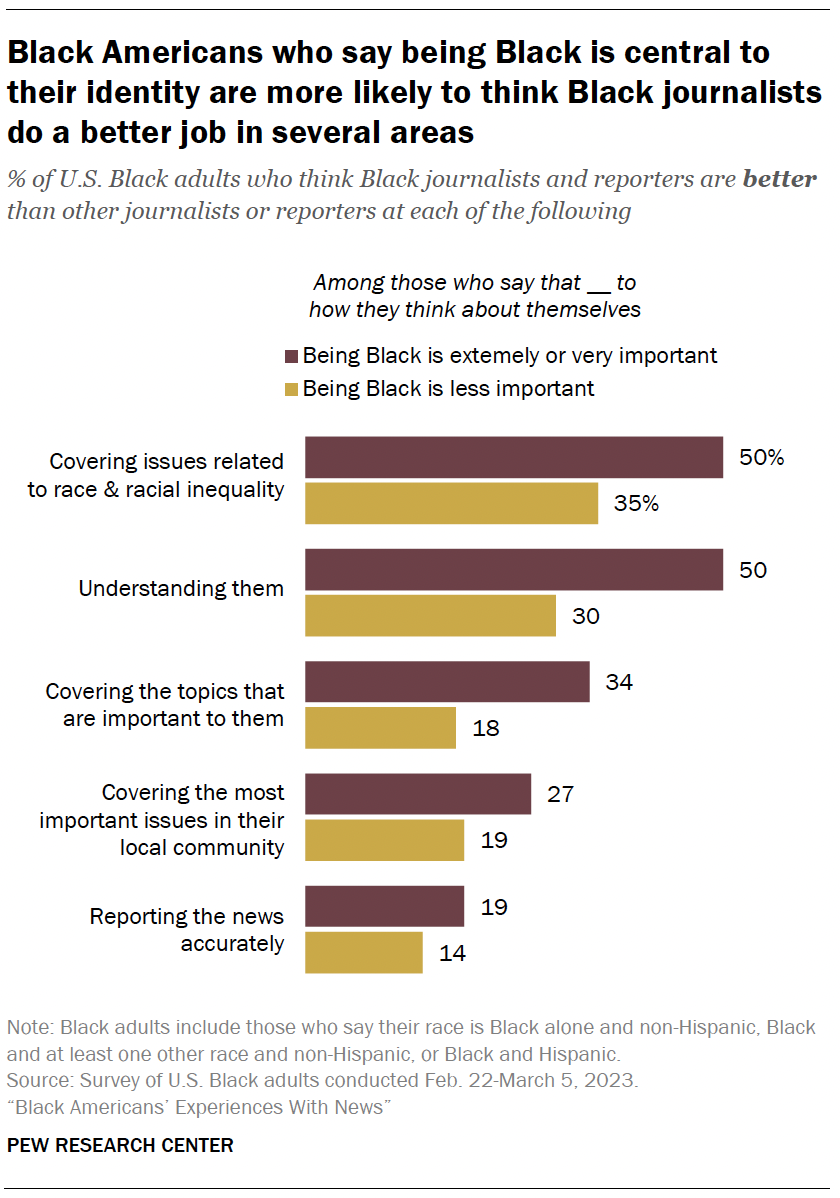Americans who say that being Black is important to their identity often differ from other Black adults in their views about coverage of Black people, solutions to unfair coverage and the role of Black journalists. (Previous Center findings provide more details on race being central to the identity of Black Americans.)

For example, about two-thirds of those who say being Black is extremely or very important to how they think about themselves (68%) say news about Black people is often more negative than news about other groups, compared with 53% of those for whom being Black is less important (i.e., who say it is somewhat, a little or not at all important). On whether that coverage largely stereotypes Black people, the gap is 48% vs. 35%. And 62% of those who say being Black is highly important to their identity say news about Black people only covers certain segments of Black communities, compared with 48% among those who say being Black is less important.
How should journalists cover Black people?
Differences based on the importance of racial identity are even more pronounced when it comes to views about the steps journalists should take when covering Black people.
Among those who say that being Black is extremely or very important to how they think about themselves, roughly six-in-ten (59%) say it is extremely or very important for journalists to advocate for Black people when covering them. That number falls to 28% among those who say being Black is less important to their identity.

There are similar gaps on the question of whether journalists covering Black people should personally engage with the people they cover, understand the history of the issues in the story, and cover all sides of the issues in the story.
Black Americans who say they at least sometimes see news coverage about Black people that is racist or racially insensitive were asked how effective four different actions would be in making coverage of Black people fairer: educating all journalists about issues impacting Black people, including more Black people as sources in stories, hiring more Black people in leadership roles at outlets, and hiring more Black journalists (read Chapter 2). Those who feel strongly that being Black is an important part of their identity are far more likely to think that each of these steps would be highly effective in making news about Black people fairer.
For instance, those who say being Black is a key part of their identity are more than twice as likely as other Black adults to say hiring more Black newsroom leaders would be extremely or very effective in making coverage of Black people fairer (63% vs. 28%).
Black journalists and representation in newsrooms

Large gaps also consistently emerge between these groups in how much they value getting news from Black journalists.
Among those who say being Black is central to their identity, about half (49%) say it is extremely or very important that the news they get about issues related to race and racial inequality comes from Black journalists. That’s more than twice the percentage among those who say that being Black is less important to them (21%).
There also is a large gap when it comes to views toward Black journalists covering news about their local community. Fewer in both groups, though, think it is crucial that their news in general comes from Black journalists.

Those who say being Black is highly important to their identity also are more likely to think that Black journalists do a better job than other journalists in a number of ways.
Half in this group say Black journalists are better at understanding them than other journalists, compared with 30% among those who say being Black is less important to them. Americans who say being Black is central to their identity also are especially likely to say Black journalists are better at covering issues related to race and racial inequality and the topics that are most important to them.